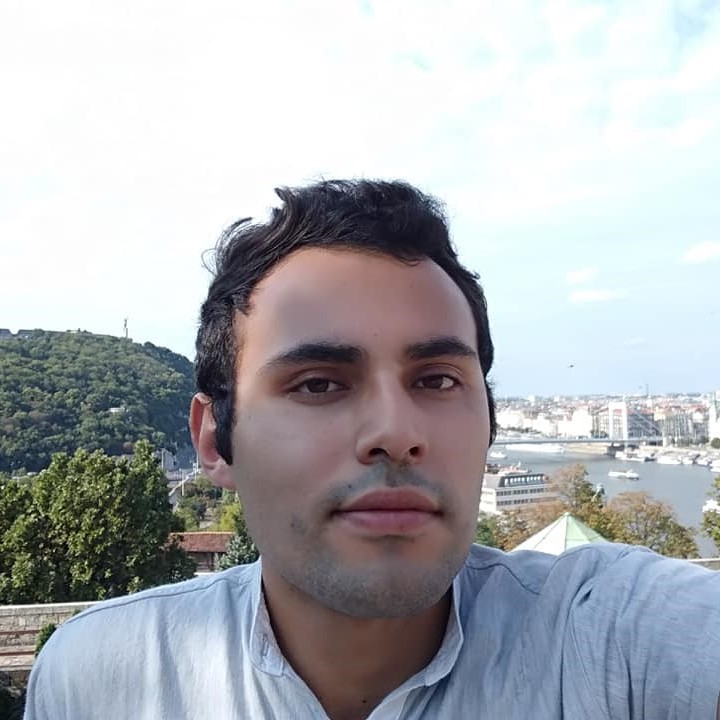California’s Other Pandemic
We had wildfire evacuation warnings when I was a child, but the threat is now so severe that we packed bags with whichever mementos and essential items we could fit in our car, to prepare to flee if conditions worsened.
United States, Northern America
Story by Elspeth Mathau. Edited by Melaina Dyck
Published on September 23, 2020.
Reading time: 5 minutes
This story is also available in 



Thunder claps and the thuds of falling tree branches awoke my family and I to the massive lightning storms sweeping through Marin, CA. Lightning is a rare occurrence even during the rainy season in Northern California. Lightning in dry August, with a small strike in a nearby park, was terrifying. The storms started fires all over the state.[1] In the morning came the smoke. Opaque and stifling air, intense drying heat, and power outages[2] made for a scary hellscape.
Terrible air quality caused my family and I headaches and respiratory issues for weeks. Smoke was so thick some days that I could not see past the trees immediately next to our home. Conditions change rapidly from clear blue to smoky skies. For me this is difficult and unnerving. The campfire smell, usually comforting, makes me feel on edge now, as it embodies death and destruction of forests and homes. Though the air has improved and rate of spread slowed in the San Francisco Bay Area, many fires are still not contained. Even the few days the sky is clear, crimson sun- and moonrises and ash rain remind me of what is lost in the fires and show the potential skyscape of our future.
In recent years, climate and weather patterns have become alien to the Northern California I grew up knowing. We had wildfire evacuation warnings when I was a child, but the threat is now so severe that we packed bags with whichever mementos and essential items we could fit in our car, to prepare to flee if conditions worsened. That was a level of panic and grief I have not experienced. Yet, the ability to evacuate and bring some things with me is a privilege compared to the total devastation nearby communities faced.
I don’t see many people in my area wearing N95 or other masks suitable for smoke particulates.[3] (I wonder if they have masks at all). As fire season progresses and the pandemic worsens, I’m afraid that the persistent smoke could make us more vulnerable to covid-19 and other respiratory illnesses. This is especially concerning for housing-insecure people with little opportunity to shelter inside. This could be a deadly combination during the rest of fire season. August saw California’s highest numbers of covid-19 deaths so far.[4]
Many city and county fire departments are under-staffed and -resourced. It infuriates me that the California Fire Department is complicit in creating inadequate and unethical systems for fire management that leave ecosystems and lives vulnerable. The state drafts underpaid, incarcerated persons for the majority of our state fire fighters. But with covid-19 rampant in prisons, exacerbated by neglect and inadequate treatment, we now have a shortage of firefighters.
California has many pyrophyte[5] plants and ecosystems, such as the giant Sequoia and Redwood trees and Chaparral.[6] However, California’s ecosystems are not adapted for the mega fires becoming ever more common due to decades of fire suppression, land degradation, and climate changes. This year I’ve noticed that more people are discussing and open to fire management alternatives. Strategies such as indigenous prescribed burning methods[7] and communal land stewardship focused on fostering biodiversity will help California cope with impending climate change. I am hopeful that out of the ashes of this fire season, action towards better landscape management will emerge.
Footnotes
[1] The fires started by the lightening storm were located all over the San Francisco Bay Area (a few further south). In total this year there have been 7,606 wildfire incidents and 2,277,922 acres estimated acres burned, according to Cal Fire.
[2] The high storm winds caused power flickering. Since last year the state power company (Pacific Gas and Electric) has also organized planned power outages during high fire risk conditions to avoid electrical fires, which have sparked in past years.
[3] N95 masks are designed to capture and filter out 95% of tiny 0.3 micron particles in the air, effective for both smoke and droplets with pathogens.
[4] 3,796 total death in the month of August
[5] Adapted to cope with fire and may need regular burning to thrive
[6] Shrub and woodland ecoregion classed within the Mediterranean Biome
[7] Prior to settler-colonization, indigenous communities used cultural burning to manage ecosystems and promote beneficial plants. Indigenous burning methods were outlawed for many years, but recently have been permitted again as state officials recognize the importance of prescribed burning to protect against wildfires. https://www.npr.org/2020/08/24/899422710/to-manage-wildfire-california-looks-to-what-tribes-have-known-all-along
How does this story make you feel?
Follow-up
Do you have any questions after reading this story? Do you want to follow-up on what you've just read? Get in touch with our team to learn more! Send an email to [email protected].
Talk about this Story
Please enable cookies to view the comments powered by Disqus.
Subscribe to our Monthly Newsletter
Stay up to date with new stories on Correspondents of the World by subscribing to our monthly newsletter:
Tags
Topic: Environment
> Ukraine
Ask, not tell: how government should engage communities on climate change
A story by Illia Yeremenko
4 min English Audio available
Communities and local NGOs know better than the government about environment policies. Communities should lead the energy transition in Ukraine. Read more...
> Hungary
Everyone has their place and time - how climate depression came to me
A story by Lilla Csordás
4 min
We worry about a lot of things these days, but I believe climate change is the foremost topic we have to change and influence. Read more...
> United States
Fire, Flood and Fury: Voting for the Climate
A story by Melaina Dyck
5 min
I am in the first generation to grow up in the climate crisis. My environmentalist journey began with fire. Read more...
Explore other Topics
Get involved
At Correspondents of the World, we want to contribute to a better understanding of one another in a world that seems to get smaller by the day - but somehow neglects to bring people closer together as well. We think that one of the most frequent reasons for misunderstanding and unnecessarily heated debates is that we don't really understand how each of us is affected differently by global issues.
Our aim is to change that with every personal story we share.
Community Worldwide
Correspondents of the World is not just this website, but also a great community of people from all over the world. While face-to-face meetings are difficult at the moment, our Facebook Community Group is THE place to be to meet other people invested in Correspondents of the World. We are currently running a series of online-tea talks to get to know each other better.



























